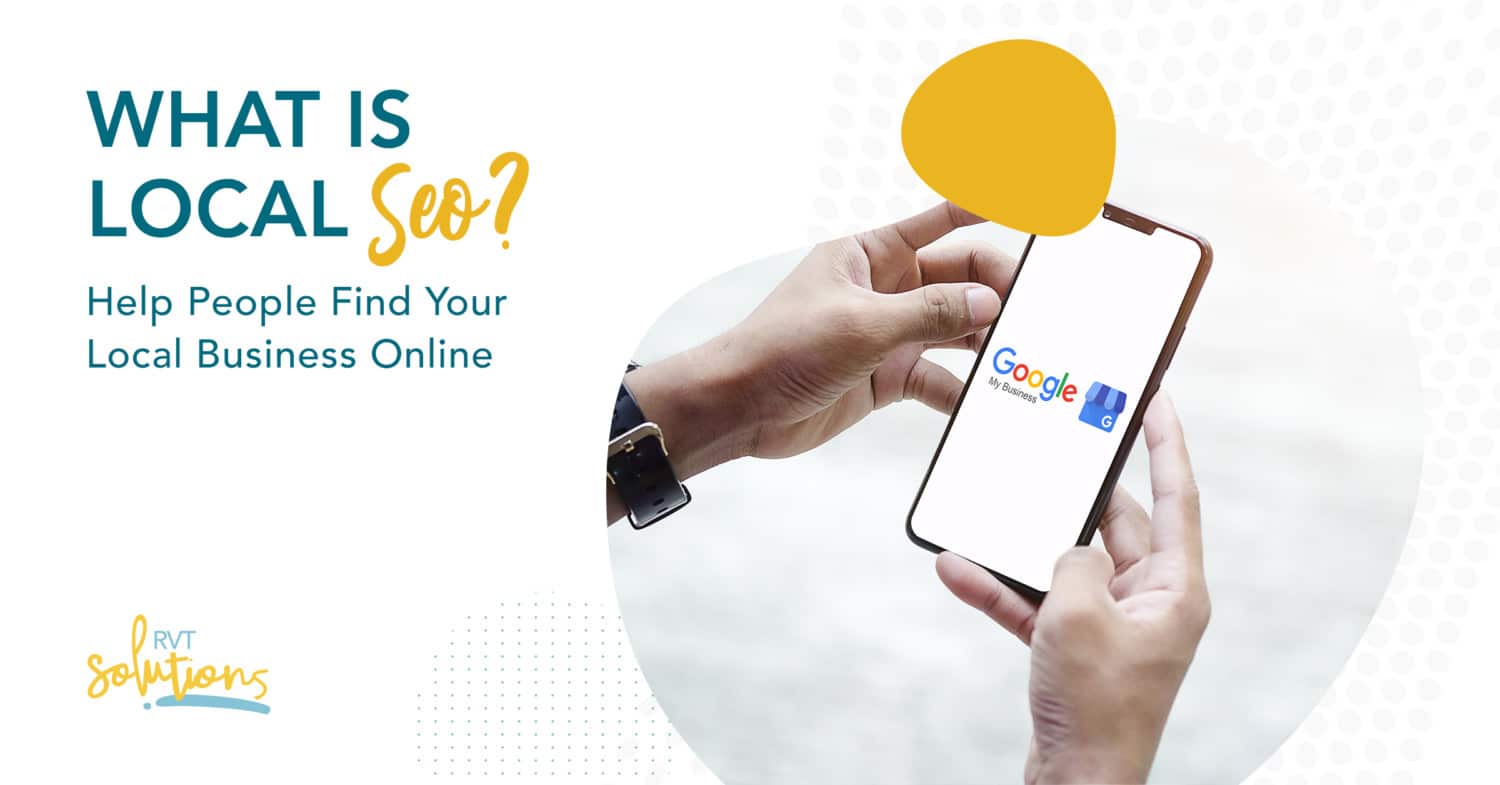As a small business owner, you have sacrificed so much to be your own boss. You’re realizing your dream of owning a business but with it comes a challenge: getting those customers in your door and having a steady stream of them. Knowing how to market your business is huge, but there’s another method of getting people to connect with you: local SEO.
What Is Local SEO?
 Simply put, local SEO is optimizing your online presence in a way that brings you to the forefront of local searches. Think about the last time you were looking for a local place to eat or shop. You likely went to a search engine and searched for businesses nearby. When local places pop up, that’s local SEO working in real-time. It’s important to note that local SEO doesn’t just mean search results. It includes optimizing all your online content, on-page optimizations, and link and citation building and management too.
Simply put, local SEO is optimizing your online presence in a way that brings you to the forefront of local searches. Think about the last time you were looking for a local place to eat or shop. You likely went to a search engine and searched for businesses nearby. When local places pop up, that’s local SEO working in real-time. It’s important to note that local SEO doesn’t just mean search results. It includes optimizing all your online content, on-page optimizations, and link and citation building and management too.
Why You Need Local SEO
You may be wondering why you should spend the time optimizing for local SEO and what you will gain out of it. Here are a few reasons to invest your time and energy into local SEO for your business:
- Local SEO makes it easier for local businesses to find their local customers. Rather than word-of-mouth - a method that can be in slow motion comparatively - or requiring that a customer drives by your store, local SEO puts you in front of the potential customers searching for a business just like yours.
- When it comes to making it easier for customers to find information about your business, local SEO is the answer. Your customers want to know the basics: your address, phone number, hours of operation, services, etc. With local SEO, you can make all that information easily available.
- Google favors small businesses through local SEO. That means when someone searches for a product or service, often Google will bring up your small business before recommending the big guys.
- Consumers want to shop local. As they are looking for local businesses to spend their money, they also keep the distance in mind. Most often customers will choose to patron a business that’s within 20 minutes of their location. With local SEO, you can target these customers that are closest to your business.
Fundamentally, local SEO speeds up the consumer’s journey from prospect to paying customer. This means local SEO can have a direct impact on your revenue stream. What better reason to invest in it is there?
Local SEO And Your Website
As you optimize your online presence for local SEO there are some main components to include.
- Basic business information
- Store locator and map
- Content that draws in customers
- Reviews
- Links
The more you use these components in your online content, the more Google and other search engines can pull you up in the rankings, making your business higher and higher on the list when people do a search.
NAP
When optimizing your website and online presence, arguably the first place you should start is adding in as many mentions of your Name, Address, and Phone Number (NAP) as possible. Together, these work to bring in more customers. Described by some as a sort of online thumbprint for your business, your NAP is how Google will know that your business is worth mentioning versus another. The more it sees your NAP, the more it will list your business when a search is made.
One thing to note about your NAP is that consistency is key. If you have different business names showing up or your phone number isn’t the same from one mention to another, it can lower your ranking. As you include your NAP throughout the internet, be sure and double-check that you are being 100-percent consistent.
Google My Business
Formerly Google Local, Google My Business is your business profile on Google. Because Google holds the title as the most used search engine, with 92% of searches running through it, your Google My Business profile is incredibly important. It should contain the following key pieces of information:
- Services
- Contact details
- Business description
- Category
- Opening times
- Photos and logo
Along with the objective or factual information about your business, it will also have subjective information, or that information provided by customers. For example, it will have your Google My Business Q&As and Google reviews left by customers.
Your Google My Business profile is so important that experts listed it as the Number One ranking factor for local searches, with 82% of those experts saying they believe it’s effective for local pack rankings. Take time to thoughtfully craft your Google My Business profile and you’ll soon see that it’s making a difference in how customers are finding your business.
Reviews
Whether good or bad, reviews will make a difference in your rankings and how many customers you find coming through your door. Most customers will pay attention to reviews. Consider the following data on three of the main factors that make up your reviews:
- Freshness: Studies show almost half of consumers will only pay attention to reviews that are 2 weeks old or newer.
- Star Rating: Around 53% of customers will only consider visiting a business with less than 4 stars.
- Responses: Approximately 46% of people say they always read a business’s responses to reviews and 71% say they are more likely to spend money at a business that responds to their reviews.
Along with making a difference in your search engine rankings - based on the number of reviews you have and how often new reviews are published - your reviews clearly have an impact on your potential customers. They are also a great way to get customer feedback. While Google is a great place to get reviews, look into other websites where customers can leave reviews, like Yelp, Facebook, HomeAdvisor, etc.
To get more reviews, try any of these easy tools:
- Ask your customers when you are making the transaction
- Collect your customers’ emails and email them requesting reviews
- Text your customers
- Leave links to your review profiles around your online profiles, websites, and pages
Citations For Local Searches
A part of local SEO that intimidates many business owners are citations for local searches. These are essentially simply anywhere your business’ NAP information shows up together online. This is typically online directories of local business listings. These come in two types: structured, or those listings that lay out the NAP in a structured format, and unstructured, which are more often from press and social media where the NAP is present but not in a structured format.
While citations likely won’t get you ranked higher by themselves, they are necessary if you want to compete in your local marketplace. It also sends signals to search engines that they can trust you. To top it off, it makes it easier for customers to find you and makes sure they don’t get confused. Without these, you won’t show up in the places where your customers are, and you’ll miss out on the business opportunity.
Social Media With SEO
Social media is now a basic thing that businesses have to do and part of that is optimizing your social media for local SEO.
First and foremost, you should have a range of social media profiles, at least on the following platforms:
These will provide you with some of the easiest inbound links and citations to acquire. By creating a presence on these commonly-used platforms, it makes you available to your customers and more responsive to their questions and concerns.
A few tips on using social media:
- Always use a high-quality logo
- Spend the time to get high-resolution, quality photos or a graphic as your cover image
- As with your NAP, be consistent with your information
- Always add your location information to your profile to improve your rankings.
Takeaways
Local SEO is crucial for small and local businesses to thrive. It’s the best way to reach your local customer base. With a little thoughtful work, you can quickly and easily optimize your online presence to rank better and see more customers. The more you put into your local SEO, the greater the return.
Need help with your online presence? We are here to help! Get started today.
LET'S ASSESS YOUR WEBSITE AND SEO OPPORTUNITIES
Get your comprehensive and customized complimentary website and SEO (Search Engine Optimization) audit report.


